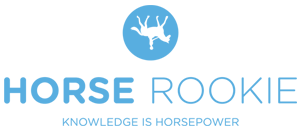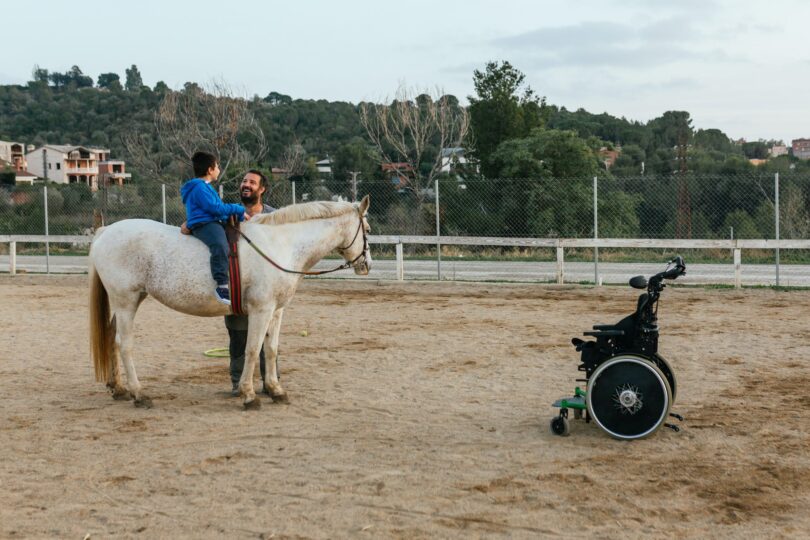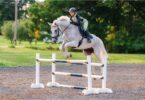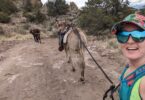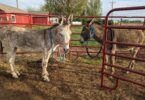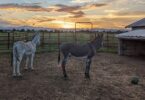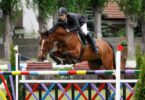Tilda Carnegie is a 20 year old
However Tilda has had to learn to live with physical disabilities so significant that in her infancy the doctors were unsure if she would survive. She now successfully rides and competes in Grade 4 paraequestrian
Tilda comes from a non-horsey family, however once she found her way into the saddle her family have never failed support her equestrian pursuits. At just 10 years old, an afternoon with her cousin and her pony ‘Friday’ led to Tilda taking riding lessons and was ultimately the start of life long passion for horses.
From Show Horses to Dressage
Like many successful
My disabilities made jumping hard and was never gutsy enough either, so deep down I always knew I’d end up doing
Tilda currently compete’s her two warmbloods, Becks, aka Quebec 51 and Turbo, aka Shiraz Sparkling, each with their own unique personalities. Becks “is literally the horse version of me; smart, honest but also quite sassy!” While he is a school master having competed up to Prix St Geroge, don’t be fooled into thinking he is an easy ride. Currently Tilda completes him in the paraequestrian classes on him but has plans to do medium, working towards Prix St George.
On the other hand Turbo, who may not be the biggest moving horse, has been integral in putting the fun back into riding, Tilda tells me that he has been good for her soul. “He is just one seriously cool dude, who is clever, loyal and opinionated.” They are currently training medium and competing novice.
Tilda is a grade 4 paraequestrian
Tilda explains, “when I was born I had a wide range of issues that range from permanent disabilities to severe illnesses. I was also born profoundly deaf, a foot condition called macrodactly, had a muscle disorder called dystonia, along with a few other things.
My deafness has nothing to do with my classification (as they only classify physical disabilities and blindness). I wear a cochlear implant and can speak but being deaf has been very socially isolating.
Macrodactly is a condition where either your foot or your hand grows too big to function (at one stage my right foot was five times bigger than my left). Most doctors thought I would need my foot amputated, but my mum refused this answer. We eventually found a surgeon who was able to save the foot, but by then I had already had five surgeries on my right foot. So I do have a foot, but its basically half missing! I have two toes and half my bones and nerves are missing. Luckily I can walk unaided, but it does hurt after a while and my foot does randomly go numb and I can’t turn my foot inwards.
Dystonia is a condition where your muscles randomly contract and spasm, basically like a seizure. So as a baby, my back would randomly arch back and contract involuntarily for 20-30mins.
Luckily with a lot of therapy I have over come all of these problems for most part… however I have 25-35% (depends which body part) less function on my right side. I often struggle to coordinate my right side to give my horses the correct aids, which can prove to be interesting! It is also hard for me to ride evenly so that is always a constant battle.”
I asked Tilda what is one thing you would like people to know about people living with disabilities or paraequestrians?
“Never underestimate what someone with a disability can do. Basically we all want to get to point A from point B, just people with a disability might have to get to point C first. Generally speaking it will have taken a lot of resilience, guts and determination for someone with a disability to get to point A. But once they have gotten to point A, they will have inner reserves of strength that will get them further in life than most able-bodied people. It’s mind over matter.”
I asked Tilda what it meant for her to be able to ride and she explained, “I think the bond you share with a horse or any other animal is something truly special and riding/competing my horses magnifies this bond. As my coach said to me, can you think of any other animal that’d let you on it’s back and perform tricks?!”
Overcoming Competition Nerves
As I’ve got to know Tilda, I get the sense that she is someone who holds herself to very high standards. While this is generally a good thing, I know from personal experience that this can cause pressure and take the fun out of competing. To look at Tilda riding now, it’s hard to imagine that her nerves were once so bad that she was barely able to show without crying or throwing up!
So how did she get past this? Firstly she pushed herself to compete until it was normal. Being able to have fun without any pressure on Turbo was a huge help.
Tilda also described hitting a rock-bottom to the point where she was ready to quit riding. “I didn’t believe I had any talent… but when enough things go wrong… you realise that life will always go on no matter what. The outcome of one show just doesn’t matter in the grand scheme of things, as in
What is Tilda most proud of so far?
Despite some great results with her horses at some big competitions, it’s the relationship Tilda has with her horses that she is most proud of. As well as developing the skillset to ride her horses through most conditions, even when they are being tricky. “It’s one thing to ride a horse all perfectly tuned up (hey its fun!) but you really grow as a rider on horses that make you ride your butt off for every percentage point and mark.
When I initially started I was very inexperienced so would always need a lot of help tuning up the horses. But I am very proud to have gotten to a point of being able to ride my horses 95% of the time and even improve them sometimes. I’m more proud of how I’ve gotten to this point, than I am of my results.”
Tilda’s greatest ambition is to ride in the Paralympics, “it would be what dreams are made off. One day I’d also love to ride Grand Prix and maybe train a horse or two up. It would be amazing to one day have my own property and have a few horses to ride and train.”
As for her professional future Tilda hopes to combine business and politics. “I am also interested in helping other people, as I have had so many amazing opportunities. It’s good to be successful and all that but my parents have taught me that it’s important to help others along the way.”
